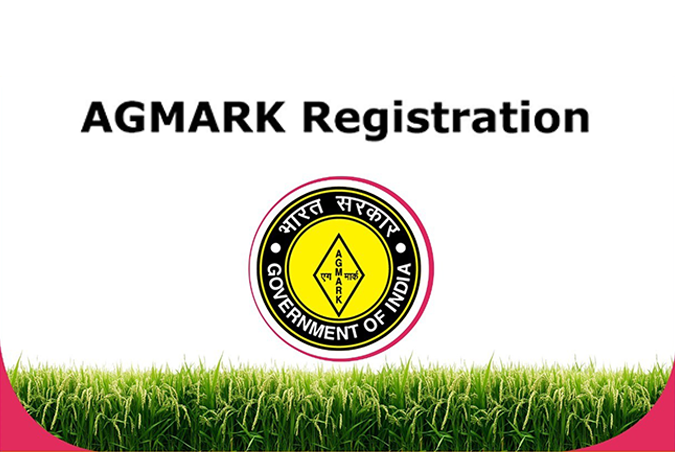Embark on Your Entrepreneurial Journey: Your Comprehensive Guide to Company Registration in India - SSA Tax Explains

09Jul
Embark on Your Entrepreneurial Journey: Your Comprehensive Guide to Company Registration in India - SSA Tax Explains
Embark on Your Entrepreneurial Journey: Your Comprehensive Guide to Company Registration in India - SSA Tax Explains
The dream of starting your own venture is a powerful one. India's dynamic economy offers immense opportunities for aspiring entrepreneurs, and the first crucial step in formalizing your vision is company registration. This process lays the legal foundation for your business, providing it with a distinct identity and enabling it to operate within the regulatory framework.
At SSA Tax, we are dedicated to empowering entrepreneurs from the ground up. This comprehensive guide will walk you through the essentials of company registration in India, the different types of companies you can register, the process involved, and how SSA Tax can be your trusted partner in this foundational step.
Why is Company Registration Important?
Registering your business as a company offers numerous advantages:
-
Legal Recognition: It grants your business a separate legal entity, distinct from its owners. This provides limited liability protection, shielding your personal assets from business debts.
-
Enhanced Credibility: A registered company enjoys greater credibility and trust among customers, suppliers, and financial institutions. It portrays a more professional and established image.
-
Access to Funding: Registered companies are often preferred by investors, venture capitalists, and banks when seeking funding for expansion and growth.
-
Scalability and Expansion: The corporate structure is generally more conducive to scaling operations and attracting talent.
-
Ease of Transferability: Ownership in a company can be transferred more easily compared to other business structures.
-
Perpetual Succession: A company has perpetual succession, meaning its existence is not affected by the death, resignation, or insolvency of its members.
Types of Companies You Can Register in India:
Choosing the right type of company structure is a critical first step. The most common types include:
-
Private Limited Company (PVT LTD): This is the most popular choice for startups and small to medium-sized businesses. It has a minimum of two and a maximum of 200 members and restricts the transferability of its shares.
-
Public Limited Company: Suitable for larger businesses that intend to raise capital from the public through the issuance of shares. It has a minimum of seven members and no limit on the maximum number of members.
-
One Person Company (OPC): Introduced to encourage individual entrepreneurs, an OPC can be formed with just one director and one member.
-
Limited Liability Partnership (LLP): Combines the flexibility of a partnership with the limited liability of a company. It requires a minimum of two partners and has no upper limit.
-
Section 8 Company (Non-Profit): Formed for charitable or non-profit objectives, with profits intended for promoting these objectives.
The Process of Company Registration in India:
The company registration process in India is primarily online and involves the following key steps:
-
Obtain Digital Signature Certificates (DSCs): Directors and subscribers need valid DSCs for online document signing.
-
Obtain Director Identification Numbers (DINs): Proposed directors must obtain DINs from the Ministry of Corporate Affairs (MCA).
-
Name Reservation: Choose a unique and available name for your company and apply for its reservation through the MCA portal (RUN - Reserve Unique Name).
-
Drafting of Memorandum of Association (MoA) and Articles of Association (AoA): These are the foundational documents of the company, outlining its objectives, powers, and internal regulations.
-
Filing of Incorporation Application (SPICe+ Form): Submit the online application for incorporation along with the MoA, AoA, and other required documents on the MCA portal.
-
Payment of Registration Fees and Stamp Duty: Pay the applicable registration fees and stamp duty online.
-
Certificate of Incorporation: Upon successful verification, the Registrar of Companies (RoC) will issue the Certificate of Incorporation, officially recognizing the existence of your company.
- Obtain PAN and TAN: Apply for the Permanent Account Number (PAN) and Tax Deduction and Collection Account Number (TAN) for your company. 1
-
Open a Current Bank Account: Open a current bank account in the name of the company.
Post-Incorporation Compliances:
Once your company is registered, it's crucial to adhere to various post-incorporation compliances, such as:
- Filing of commencement of business form.
- Holding board meetings and annual general meetings.
- Maintaining statutory registers.
- Filing annual returns and financial statements with the MCA.
- GST registration and filing (if applicable).
- Income tax return filing.
How SSA Tax Can Be Your Partner in Company Registration:
Navigating the intricacies of company registration can be time-consuming and complex. SSA Tax offers comprehensive services to streamline this crucial process for you:
- Guidance on Choosing the Right Company Structure: We help you determine the most suitable type of company based on your business goals and requirements.
- DSC and DIN Assistance: We assist you in obtaining the necessary DSCs and DINs for the directors.
- Name Reservation: We help you choose and reserve a unique and compliant company name.
- Drafting of MoA and AoA: Our experts draft legally sound and comprehensive MoA and AoA for your company.
- Filing of Incorporation Documents: We handle the online filing of all necessary documents with the MCA.
- Liaison with the RoC: We act as your point of contact with the Registrar of Companies.
- Assistance with PAN and TAN Application: We guide you through the process of obtaining PAN and TAN.
- Post-Incorporation Guidance: We provide guidance on the initial post-incorporation compliances.
Why Choose SSA Tax for Your Company Registration?
- Expertise and Experience: Our team has extensive experience in company registration and a thorough understanding of the legal requirements.
- Hassle-Free Process: We simplify the entire process, minimizing your effort and ensuring a smooth experience.
- Time Efficiency: We help you register your company quickly and efficiently.
- Accuracy and Compliance: We ensure all documents are accurate and compliant with the regulations.
- Dedicated Support: We provide dedicated support throughout the registration journey.
Conclusion:
Embarking on your entrepreneurial journey by registering your company is a significant step. With the right guidance and support, this process can be smooth and efficient. Let SSA Tax be your trusted partner in laying the legal foundation for your business success.
Contact SSA Tax today to discuss your company registration requirements and take the first step towards realizing your entrepreneurial vision.
Contact SSA Tax:
- Phone: [+91-9773346539/34]
#CompanyRegistration #BusinessRegistration #StartupIndia #PrivateLimitedCompany #OPC #LLP #PublicLimitedCompany #Section8Company #MCA #ROC #Entrepreneurship #StartYourBusiness #IndiaBusiness #SSATax #SSA #Jaipur #Rajasthan #BusinessSetup #LegalCompliance
All Blogs
-
 Why Food Licensing Matters: Ensuring Safety and Trust with FSSAI - SSA Tax Explains
Why Food Licensing Matters: Ensuring Safety and Trust with FSSAI - SSA Tax Explains -
 GST Compliance Calendar: April 2025 - Stay Ahead with SSA Tax!
GST Compliance Calendar: April 2025 - Stay Ahead with SSA Tax! -
 Unlock Secure Online Transactions: Your Guide to Digital Signature Certificates (DSC) - SSA Tax Explains
Unlock Secure Online Transactions: Your Guide to Digital Signature Certificates (DSC) - SSA Tax Explains -
 Unlock Your Startup Potential: Your Guide to Startup India Registration - SSA Tax Explains
Unlock Your Startup Potential: Your Guide to Startup India Registration - SSA Tax Explains -
 Navigating the Labyrinth: Your Essential Guide to Company Compliances in India - SSA Tax Explains
Navigating the Labyrinth: Your Essential Guide to Company Compliances in India - SSA Tax Explains -
 Embark on Your Entrepreneurial Journey: Your Comprehensive Guide to Company Registration in India - SSA Tax Explains
Embark on Your Entrepreneurial Journey: Your Comprehensive Guide to Company Registration in India - SSA Tax Explains -
 Decoding the New Income Tax Regime 2025: A Comprehensive Guide by SSA Tax
Decoding the New Income Tax Regime 2025: A Comprehensive Guide by SSA Tax -
 Decoding the New Section 80-IAC Tax Exemption for Startups: A Game-Changer by SSA Tax
Decoding the New Section 80-IAC Tax Exemption for Startups: A Game-Changer by SSA Tax -
 Navigating the Storm: Understanding Recent DGGI Guidelines on GST Investigations and Summons - SSA Tax Insights
Navigating the Storm: Understanding Recent DGGI Guidelines on GST Investigations and Summons - SSA Tax Insights -
 Unlocking the 80-IAC Tax Exemption: Your Guide to DPIIT Recognition and Claiming Benefits - SSA Tax Explains
Unlocking the 80-IAC Tax Exemption: Your Guide to DPIIT Recognition and Claiming Benefits - SSA Tax Explains -
 Understanding the New Nuances of Non-Disclosure Agreements (NDAs) - SSA Tax Insights
Understanding the New Nuances of Non-Disclosure Agreements (NDAs) - SSA Tax Insights -
 Ensuring Quality and Trust: Your Comprehensive Guide to the New AGMARK Certification - SSA Tax Explains
Ensuring Quality and Trust: Your Comprehensive Guide to the New AGMARK Certification - SSA Tax Explains

